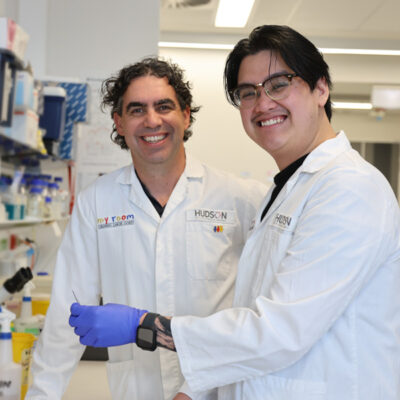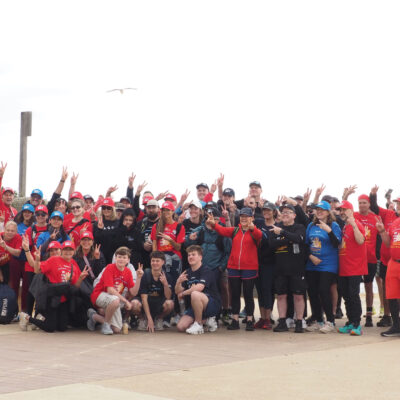Lachy’s story: hope against Stage IV neuroblastoma
By Hudson Institute communications
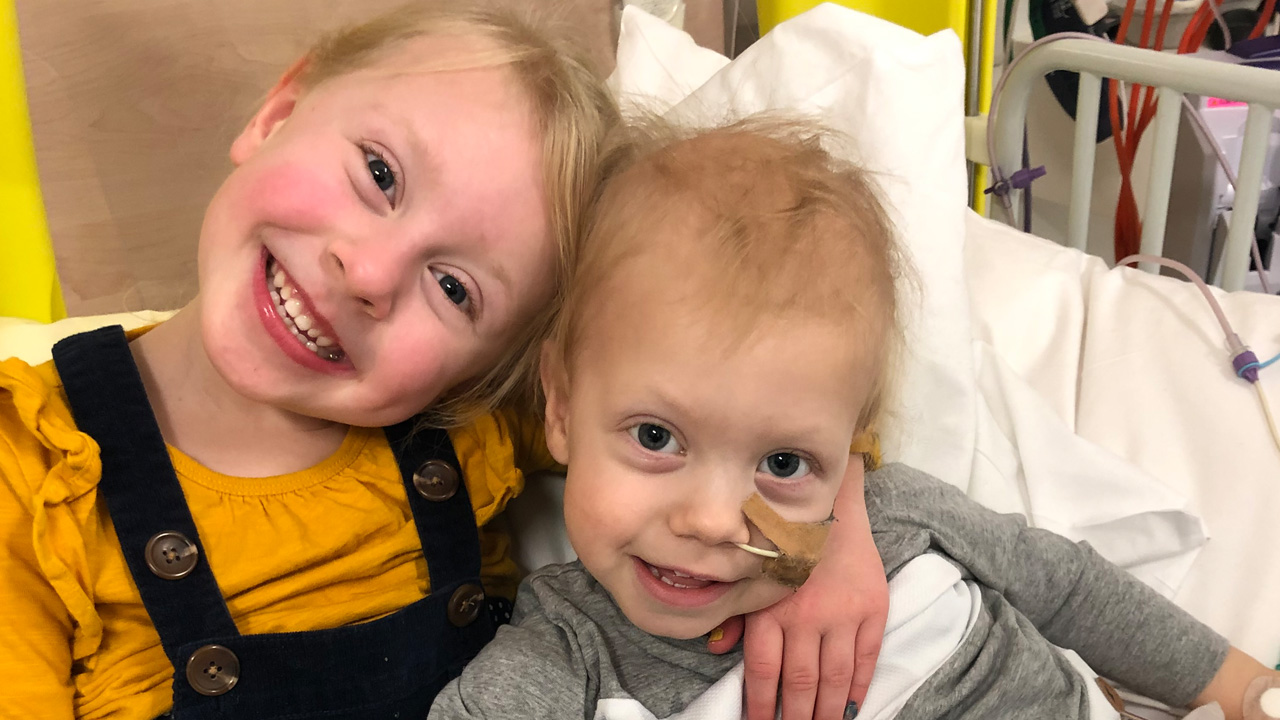
Lachlan was a happy baby with beautiful blond wavy hair. He slept and fed well. The perfect baby. At 18 months, Lachy developed fevers, vomiting and general tiredness. Doctors thought it was a daycare virus and he would get over it. But when he didn’t, his parents, Carly and Ryan, took him to the emergency department and he didn’t leave hospital for a month.
The start of a tough journey
Lachy had an 11 cm tumour in his abdomen. Within days he was diagnosed with Stage IV neuroblastoma, which had spread to his bone marrow.
“Diagnosis hit us like a ton of bricks. Neuroblastoma can be fatal and has a history of coming back. Cancer is bad enough, but when you hear it’s a nasty one you think the worst – that you are going to lose your child,” explains Ryan.
By the end of that week, Lachy had started chemo.
“It was a huge adjustment. But you’ve got to keep your kid happy, and you must move forward. You start the process.”
A shocking diagnosis: Stage IV neuroblastoma
Lachy’s treatment plan kicked off with five rounds of chemotherapy over five months. Sadly, he lost his beautiful wavy blond hair. Then it was time for surgery to remove the tumour.
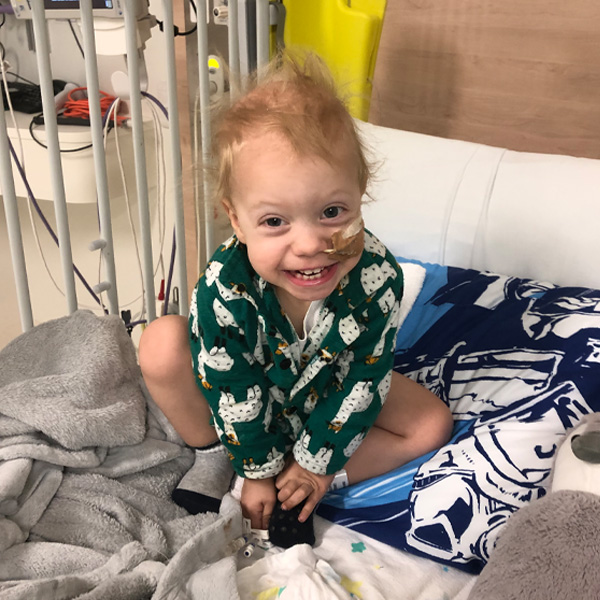
“The operation was a long 11 hours. They initially thought Lachy’s kidney could be saved, but they had to take it out. That’s rough,” Carly says.
One month in isolation
Next came a stem cell transplant using Lachy’s cleaned cells to grow bone marrow.
“We knew this was the scary treatment, when things could go bad, because it wiped Lachy’s immune system. He was in hospital isolation for his month-long recovery. We were his only two visitors.
“We got Lachy home just in time for Christmas; the best gift ever,” says Carly.
A dark time
In the New Year, Lachy went into two weeks of daily radiation therapy, which included having daily general anesthetics.
“That knocked him around. He would wake up and throw up. It was a dark time – you do your best not to think about it,” says Ryan.
The final treatment was five rounds of immunotherapy. While it was less invasive, Lachlan’s tiny body had to endure serious analgesics including morphine to control the pain.
The final step: immunotherapy
Fourteen months after diagnosis, Lachy had ticked every box on his treatment plan.
“A lot of families don’t get through that, so we knew that we were lucky,” says Ryan.
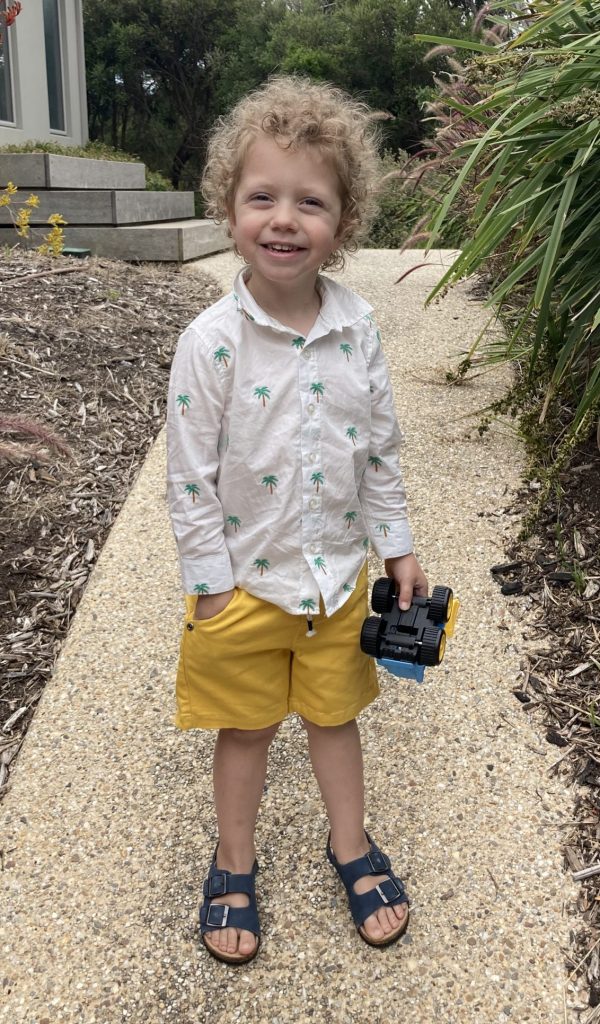
One-year cancer-free
Now, Lachy is one-year cancer free – and, amazingly, has grown back a full head of curly blond hair – a daily reminder of what he’s lost and gained.
“Another four years and he can be officially cancer free. It’s still a while to go, but we are thankful that things are going great and we’re on the path to a cure. One day at a time,” says Ryan.
“While Lachy is a happy healthy kid, we get incredibly nervous when it comes to our review dates. If bad news is going to come, that’s the time.” says Carly
Family impact
It has been an ordeal for the whole family, including Lachy’s seven-year-old sister Isabelle. “She saw things that she shouldn’t, but she’s an amazing young girl. It was tough on her, but she knew Lachy was sick and our focus was on him,” says Ryan.
“Lachy was amazing. He would smile and get on with it. He is just such a trooper.
“All these kids with cancer, they have moments when they are really sick, but they are still kids. They have bright moments of happiness and that really makes you happy, it has a snowball effect.
Hope through medical research
“Lachy still faces challenges, some hearing loss, the loss of a kidney and some long-term stuff associated with radiation and treatment, but he’s here with us, he’s happy and we’re on the path to being cured.”
Carly and Ryan are full of praise for the research that went into Lachy’s treatment.
“It gives you hope, not just for your own child, but for others. It also shows in the results – when we were diagnosed it was 50/50 – we knew medical research could make that better,” Ryan says.
Together we can invest in high-quality childhood cancer medical research that really matters for kids like Lachy
In this article
About Hudson Institute
Hudson Institute’ s research programs deliver in three areas of medical need – inflammation, cancer, women’s and newborn health. More
Hudson News
Get the inside view on discoveries and patient stories
“Thank you Hudson Institute researchers. Your work brings such hope to all women with ovarian cancer knowing that potentially women in the future won't have to go through what we have!”

